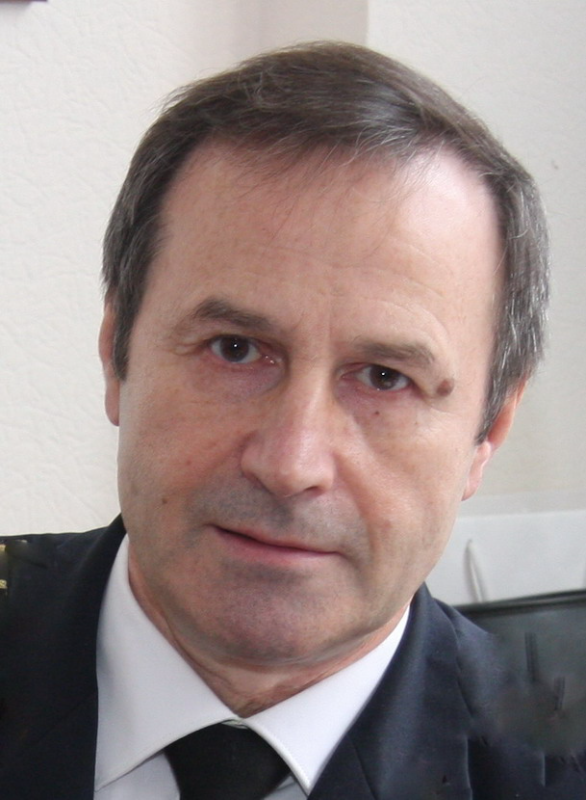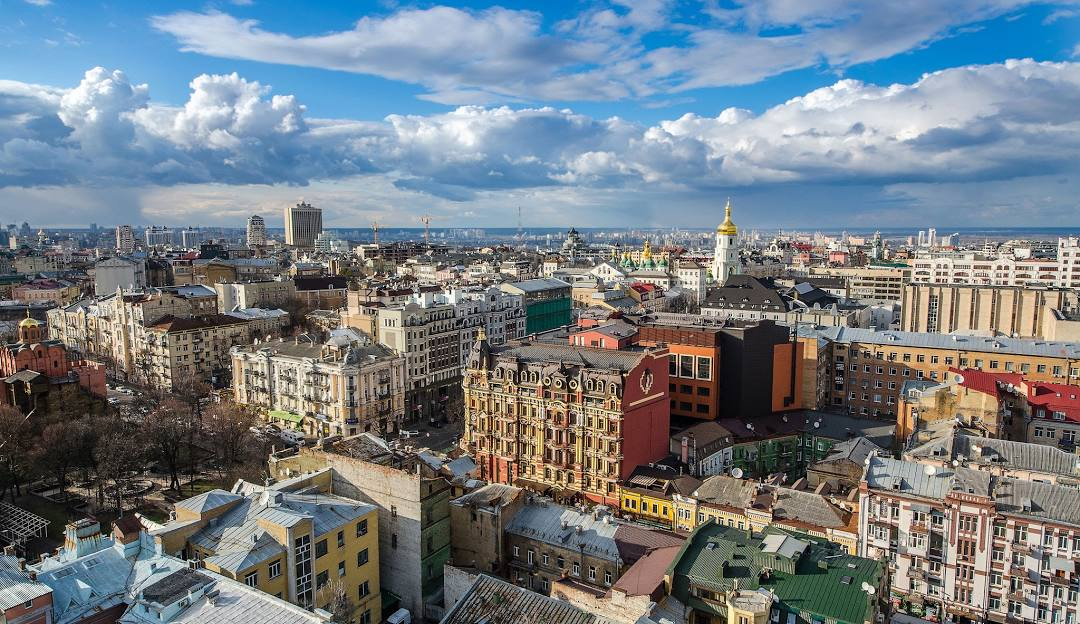

ICCSEEA2024: The 7th International Conference on Computer Science, Engineering and Education Applications
April 27 - April 28 , 2024 , Kyiv, Ukraine
The 7th International Conference on Computer Science, Engineering and Education Applications (ICCSEEA2024) - Online Conference
Kyiv, Ukraine
27–28 April, 2024
The 7th International Conference on Computer Science, Engineering and Education Applications (ICCSEEA2024) will be held on April 27–28, 2024, in Kyiv, Ukraine. The ICCSEEA2024 will bring together the top researchers from the Asian Pacific Nations, North America, Europe, and around the world to exchange their research results and address open issues in computer science, engineering, and education applications. The official conference language is English, and all the papers need to be written and presented in English.
~^o^~ Please click here to submit your paper. ~^o^~
💖 The conference book has been published online. (10-04-2025)
💖 The conference Program. (2024-4-23)
💖 Call for paper. (2023-12-16)
💖 The conference book of ICCSEEA2023 has been published online by Springer Publisher. ( 2023-08-18)
Publication Information
ICCSEEA2024 will be published by "Lecture Notes on Data Engineering and Communications Technologies", and all accepted papers will be indexed in some international major academic databases (Scopus, Ei Compendex, Google Scholar and etc.).
Authors are invited to submit original unpublished manuscripts that demonstrate recent advances in the following areas of interest, but are not limited to:
Area 1:Computer Science and Software Engineering
Big Data and Database Technologies
Data Mining and Knowledge Recovery
Knowledge Management and Knowledge Engineering
Evolutionary Computing and Genetic Algorithms
Neural Networks
Bayesian Networks
Fuzzy Systems, Soft Computing and Fuzzy Control
Formal Methods and Tools
Programming Languages
Software Modelling
Business Process Reengineering
Engineering of Embedded and Real-time Software
Reengineering, Reverse Engineering
Engineering Secure Software
Trusted Computing
Safety and Security Critical Software
Information Security and Privacy Protection
Ubiquitous Computing
Internet of Things and Web of Things
Image and Signal Processing
Data Acquisition, Normalization, Analysis and Visualization
Algorithms, Models, Software, and Tools in Bioinformatics
Biomedical Imaging, Image Processing and Visualization
Multimedia Technologies
Augmented and Virtual Reality
Human-Computer Interaction
Distributed Computer Systems
Smart Logistics and Supply Chain
Computer Systems and Networks
Parallel and Distributed Computing
Information Technology and Information Systems
Area 2:Engineering
Robotic Systems and Technologies
Intelligent Mechatronics and Robotics
Process Automation
Intelligent Automation
System Theory and Control Theory
Nonlinear Systems and Control
Industrial Electronics
Logistics Engineering
Electronics Engineering
Bioelectrical and Neural Engineering
Biomaterials and Biomedical Optics
Biomedical Devices, Sensors, and Artificial Organs
Biomedical Robotics and Mechanics
Rehabilitation Engineering and Clinical Engineering
Health Monitoring Systems and Wearable System
Bio-signal Processing and Analysis
Biometric and Bio-measurement
Electrical Engineering and Smart Grids
Area 3:Education
Knowledge Management in e-Learning
Research Perspectives for e-Learning
Virtual and Distance Education
Online Learning Environments
Logistics Talent Training
Collaborative Approaches and Technologies
Learning and Content Management Systems
Big Data in Education and Learning Analytics
Mobile Teaching and Learning Technologies
Educational Games and Simulations
Virtual Reality Learning Environment
Augmented Reality in Education
Educational Multimedia
Emerging Technologies for Learning and Teaching
Open Education
Networked Learning
Instructional Design and Technology
Formal and Informal Learning Research
Paper Submission Deadline: March 11, 2024
Notification Date: March 23, 2024
Authors' Registration: March 29, 2024
Camera Ready: March 29, 2024
Conference Dates: April 27–28, 2024
Chairs
IEEE Fellow, Felix Yanovsky, Professor in the National Aviation University, Kyiv, Ukraine; Professor, Senior Researcher in the Delft University of Technology, the Netherlands
Prof. Ivan Dychka, National Technical University of Ukraine "Igor Sikorsky Kyiv Polytechnic Institute", Kyiv, Ukraine
Prof. Anatoliy Sachenko, Kazimierz Pułaski University of Technology and Humanities in Radom, Poland
Prof. Oleksandr Pavlov, National Technical University of Ukraine "Igor Sikorsky Kyiv Polytechnic Institute", Kyiv, Ukraine
General Co-Chairs
Prof. Oleg Chertov, National Technical University of Ukraine "Igor Sikorsky Kyiv Polytechnic Institute", Kyiv, Ukraine
Prof. Yevgeniya Sulema, National Technical University of Ukraine "Igor Sikorsky Kyiv Polytechnic Institute", Kyiv, Ukraine
Prof. Yaroslav Kornaga, National Technical University of Ukraine "Igor Sikorsky Kyiv Polytechnic Institute", Kyiv, Ukraine
Prof. Matthew He, Nova Southeastern University, Florida, USA
Prof. Yuriy Ushenko, Chernivtsi National University, Chernivtsi, Ukraine
Prof. Q.Y. Zhang, Wuhan University of Technology, China
International Program Committee Members
Prof. Roman Kochan, University of Bielsko-Biała, Bielsko-Biala, Poland
Dr. Ivan Izonin, Lviv Polytechnic National University, Lviv, Ukraine
Dr. Oleksii K. Tyshchenko, University of Ostrava, Czech Republic
Dr. Essa Alghannam, Tishreen University, Syria
Dr. Rabah Shboul, Al-albayt University, Jordan
Dr. L.J. Du, Wuhan University of Technology, China
Dr. Vladimir Simov Jotsov, University of Library Studies and Information Technologies, Sofia, Bulgaria
Prof. M.Y. Zhang, Wuhan University of Technology, China
Prof. M. Wang, Wuhan Technology and Business University, China
Prof. Ihor Tereikovskyi, National Technical University of Ukraine "Igor Sikorsky Kyiv Polytechnic Institute", Kyiv, Ukraine
Prof. G.E. Zhang, Nanning University, China
Prof. Q.L. Zhou, Shizuoka University, Japan
Prof. E. Fimmel, Mannheim University of Applied Sciences, Germany
Prof. G. Darvas, Institute Symmetron, Hungary
Prof. Z.P. Liu, Wuhan University of Technology, China
Prof. Arkadiusz Jan Tofil, Lublin University of Technology, Poland
Dr. X.J. Ma, Huazhong Universiy of Science and Technology, China
Prof. S.C. Qu, Central China Normal University, China
Prof. Y. Shi, Bloomsburg University of Pennsylvania, USA
Prof. Y.C. Zhang, Business School of Hubei University, China
Dr. Feng Liu, Huazhong Agricultural University, China
Prof. Z.W. Ye, Hubei University of Technology, China
Prof. J.S. Dai, National University of Singapore, Singapore
Prof. C.C. Zhang, Fengchia University, Taiwan
Dr. Andriy Gizun, National Aviation University, Kyiv, Ukraine
Prof. Vitaly Deibuk, Chernivtsi National University, Chernivtsi, Ukraine
Dr. J. Su, Hubei University of Technology, China
Prof. H.F. Yang, Waseda University, Japan
Steering Chairs
Prof. Vadym Mukhin, National Technical University of Ukraine "Igor Sikorsky Kyiv Polytechnic Institute", Kyiv, Ukraine
Dr. A.V. Petrashenko, Faculty of Applied Mathematics, National Technical University of Ukraine“Igor Sikorsky Kyiv Polytechnic Institute”, Ukraine
Dr. Solomiia Fedushko, Lviv Polytechnic National University, Lviv, Ukraine
Prof. Sergiy Gnatyuk, National Aviation University, Kyiv, Ukraine
Prof. Oleksandra Yeremenko, Kharkiv National University of Radio Electronics, Kharkiv, Ukraine
Local Organizing Committee Members
Prof. Orest Kochan, Lviv Polytechnic National University, Lviv, Ukraine
Dr. Artem Volokyta, National Technical University of Ukraine "Igor Sikorsky Kyiv Polytechnic Institute", Kyiv, Ukraine
Dr. Oleg Melnikov, National Technical University of Ukraine "Igor Sikorsky Kyiv Polytechnic Institute", Kyiv, Ukraine
Dr. Roman Odarchenko, National Aviation University, Kyiv, Ukraine
Prof. Dmitriy Zelentsov, Ukrainian State University of Chemical Technology, Ukraine
Dr. Taras V. Panchenko, Kyiv National Taras Shevchenko University, Kyiv, Ukraine
Dr. Volodymyr Sokolov, Borys Grinchenko Kyiv University, Kyiv, Ukraine
Prof. Anatolii Pashko, Taras Shevchenko National University of Kyiv, Kyiv, Ukraine
Publication Chairs
Prof. Z.B. Hu, National Technical University of Ukraine "Igor Sikorsky Kyiv Polytechnic Institute", Kyiv, Ukraine
Prof. Felix Yanovsky, Delft University of Technology, Delft, Netherlands
Prof. Ivan Dychka, National Technical University of Ukraine "Igor Sikorsky Kyiv Polytechnic Institute", Kyiv, Ukraine
Prof. Matthew He, Nova Southeastern University, Florida, USA
Prospective authors are encouraged to submit a full paper for review by February 23, 2024, in Word or PDF format. Papers will be accepted based on peer review and should contain original, high-quality work. Claims and results should be substantive enough to be further developed as quality work. All papers must be written in English. The length of the standard paper submitted is 9–10 pages, including figures and references(One Word Example of Paper Templates). An extra page fee will be paid for the number of pages exceeding 10 pages, including figures and references. At the same time, authors with accepted papers should submit signed the Consent to Publish Form to Springer. Helpful information for paper formatting can be found on the "Information for Authors of Springer Proceedings". All accepted papers will be presented in oral sessions or poster sessions.
All submissions should be sent to iccseea@icics.net.
The conference team will respond to your email and your paper will be assigned a number.
Please write the letter in English and include your title and full name at the end of the letter.

Professor, Dr.Sc, Ph.D, Eng, IEEE Life Fellow, Ukraine State Prize Winner in the field of Science & Technology, Honored Worker of Science and Technology of Ukraine, Academician of Electromagnetic Academy (Cambridge, MA, USA), Professor, Senior Researcher in the Delft University of Technology, the Netherlands (Geoscience and Remote Sensing department) and Professor in the National Aviation University, Kyiv, Ukraine (Electronics, Robotics, Monitoring and IoT Technologies Department).
Registration Fee
| Registration | Registration Fee | Extra page |
| Regular Authors | 400 USD | 50 USD |
| Keynote Speaker | free | |
| Ukrainian Authors | free | |
| ICICS Member | free |

Kyiv (also spelled Kiev) is the capital and most populous city of Ukraine. It is in north-central Ukraine along the Dnieper River. As of 1 January 2022, its population was 2,952,301, making Kyiv the seventh-most populous city in Europe. Kyiv is an important industrial, scientific, educational, and cultural center in Eastern Europe. It is home to many high-tech industries, higher education institutions, and historical landmarks. The city has an extensive system of public transport and infrastructure, including the Kyiv Metro.
The city's name is said to derive from the name of Kyi, one of its four legendary founders. During its history, Kyiv, one of the oldest cities in Eastern Europe, passed through several stages of prominence and obscurity. The city probably existed as a commercial center as early as the 5th century. A Slavic settlement on the great trade route between Scandinavia and Constantinople, Kyiv was a tributary of the Khazars, until its capture by the Varangians (Vikings) in the mid-9th century. Under Varangian rule, the city became a capital of Kievan Rus', the first East Slavic state. Completely destroyed during the Mongol invasions in 1240, the city lost most of its influence for the centuries to come. Coming under Lithuania, then Poland and then Russia, the city would grow from a frontier market into an important centre of Orthodox learning in the sixteenth century, and later of industry, commerce, and administration by the ninenteenth.
The city prospered again during the Russian Empire's Industrial Revolution in the late 19th century. In 1918, when the Ukrainian People's Republic declared independence from the Russian Republic after the October Revolution there, Kyiv became its capital. From the end of the Ukrainian-Soviet and Polish-Soviet wars in 1921, Kyiv was a city of the Ukrainian SSR, and made its capital in 1934. The city suffered significant destruction during World War II but quickly recovered in the postwar years, remaining the Soviet Union's third-largest city.
Following the collapse of the Soviet Union and Ukrainian independence in 1991, Kyiv remained Ukraine's capital and experienced a steady influx of ethnic Ukrainian migrants from other regions of the country.[13] During the country's transformation to a market economy and electoral democracy, Kyiv has continued to be Ukraine's largest and wealthiest city. Its armament-dependent industrial output fell after the Soviet collapse, adversely affecting science and technology, but new sectors of the economy such as services and finance facilitated Kyiv's growth in salaries and investment, as well as providing continuous funding for the development of housing and urban infrastructure. Kyiv emerged as the most pro-Western region of Ukraine; parties advocating tighter integration with the European Union dominate during elections.
National Technical University of Ukraine "Igor Sikorsky Kyiv Polytechnic Institute", Ukraine
National Aviation University, Ukraine
Lviv Polytechnic National University, Ukraine
Kharkiv National University of Radio Electronics, Kharkiv, Ukraine
Wuhan University of Technology, China
Polish Operational and Systems Society, Poland
International Research Association of Modern Education and Computer Science, Hong Kong
Coming soon...
Coming soon...
The Secretary of ICCSEEA2024
Email: iccseea@icics.net